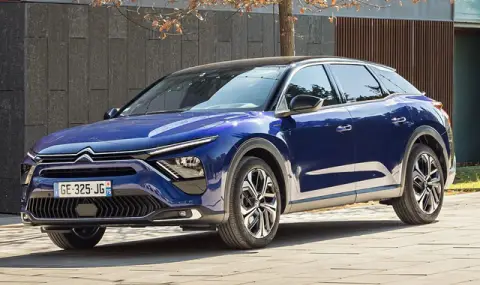Citroën will shut down the smaller and larger models in its future range and will instead focus on cars from the most mainstream segments in Europe. CEO Thierry Koskas said this in an interview with Autocar.
The top manager stated that the brand “must focus on the main segments and not on the so-called niche“. This actually confirms the fact that in the future the range will start with the B-segment and more specifically the C3, with only the Ami below it being an exception and ending with the C-segment with the C5 Aircross cars.
Koskas also said Citroën has no plans to replace the C1 due to an inability to make it profitable, and he essentially ruled out a replacement for the D-segment representative C5 X, which “doesn't perform badly, but is in a segment that practically does not exist”. He added: “Citroën should only make cars in the B- and C-segments, as this is the heart of the brand.“

Referring to the smaller models, Koskas said there is a “big gap for electric cars” priced between €10,000 and €20,000 between the Ami and the new ë-C3, but the question of filling it “is not easy“ for answer. “We have no plans at the moment,”, he said.
„If you want an A-segment car (successor to the C1), you would expect to pay less than a B-segment car, but the production costs for us are the same.“ Citroën will aim to use its new value-focused “Smart Car“ for future models in these core segments to keep costs low.
This architecture, which was introduced in the new C3, is made with fewer parts, so it is cheaper and easier to manufacture. Koskas also said that future Citroëns will not be conventional hatchbacks or SUVs because “it is in Citroën's DNA to offer new and different things”.
Instead, the brand will present “new forms that do not exist” of future models. “We will take risks, we need to shake up the market and Citroën can do that,“, added Koskas. “We will do it in the B- and C-segments, which is the majority of the European market. This is where we need to be.

Koskas said that the future Citroën range will include "not so much" cars, adding: "There's no magic number, but five or six models that are well positioned will be really attractive to customers... I'd be happy with that.
Koskas expects the majority of Citroenën sales to be electric by 2030, but the brand plans to continue producing models with internal combustion engines and hybrids because “as a popular brand, we need to offer affordable mobility to all“.
The Smart Car platform is designed to accommodate internal combustion engines, hybrids and pure electric drives, as in the C3. More generally, Citroën will aim to continue to push its message of simplicity and ensure that its models remain affordable and not loaded with unnecessary equipment. “We are aware of who we are,”, Koskas said. “Affordable cars, simple cars, comfortable cars. We are not technological Christmas trees."
